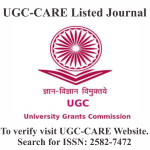A STUDY ON ISSUES AND FUTURE PROSPECTS IN MANGO FARMING AND MARKETING IN KRISHNAGIRI DISTRICT
DOI:
https://doi.org/10.29121/shodhkosh.v5.i6.2024.6542Keywords:
Issues, Prospects, Production, Marketing, MangoAbstract [English]
India is a nation of farmers, and more than two thirds of Indians depend on agriculture for their livelihood. The foundation of the Indian economy is agriculture, and without the expansion of this sector, no plan for economic growth can be successful. India's economy is well recognised for being heavily dependent on the agricultural sector, and the country's climatic conditions are ideal for the cultivation of mangoes. Mango farming is one of the key components of our nation's horticultural industry. Mango farmers typically have lower socioeconomic statuses than the general population and struggle with issues like underemployment, a lack of financial resources, and the use of middlemen. Since mango growing is a seasonal activity, it is clear that they have been jobless for roughly six months out of the year. Even while India contributes significantly to the growth and production of fruit, it still has significant obstacles that are keeping it from reaching new heights, such as the fertiliser issue and a lack of knowledge about contemporary irrigation techniques. To inspire the farming community in the future, these difficulties must be deliberately addressed. Encouragement of research in this field is a very positive development because it will encourage young people and the next generation to use their brains to find solutions to the issues and the government to put those solutions into action. With middlemen involved, farmers are said to find it extremely difficult to market their own agricultural products (Krishnagiri District). The three main marketing situations are rivals, a lack of local markets, and inappropriate. Steps in the marketing cycle include making the product, sorting it, delivering it, setting a price, communicating with customers, and finally, receiving the product. Agricultural marketing encompasses not only the production of goods and commodities but also their transportation to and from the customer. Research for this project makes use of both primary and secondary sources. The study used a sample size of 603 mango producers to gather primary data. According to the study's findings, farmers need education and training in packing, processing, and preservation as well as financial and marketing support and forward and backward linkages. Farmers needed businesspeople to market their mangoes, cold storage, and better mango production and storage methods.
References
Dr V. Sriman Narayanan V.Saminathan- 2017 Production and Marketing Of Mango In Tamil Nadu
Vadivelu1 and B.R. Kiran-2013 Problems and prospects of agricultural marketing in India: an overview.
CSA (2009) Agricultural sample survey: report on area and production for major crops, statistical bulletin 427.Addis Ababa, Ethiopia
Palanivel. V, Manikanda Muthukumar. C and Gurusamy. M, “A Study on Cultivation and Marketing of Mangoes in Krisnagiri District”, International Journal of Advanced Engineering and Recent Technology, ISSN (Online) : 2455 3522, Volume 2 Issue 1 2015, PP : 31 – 43.
Purushottam bhang (2013): Mango Cultivation Industry of India: Problems and Prospects, presented at Conference on Management and Information Systems …, 2013 - elkjournals.com
Seid Hussen and Zeru Yimer (2013) Assessment of Production Potentials and Constraints of Mango (Mangifera indica) at Bati, Oromiya Zone, Ethiopia International Journal of Sciences: Basic and Applied Research (IJSBAR)
MOFPI Report (1999): ‘Food Processing - Fact sheet’, MOFPI reports, 1999; p. 01 – 03.
Deepak Shah (2017): ‘Marketing pattern of grapes in Maharashtra – An appraisal’, Indian Journal of agricultural Marketing; 14 (1), p 40 – 48.
Ashok Gulati, et al, (2014): ‘Transforming Agri-food system: Role of organized retail in India’, presented at the first annual conference of the Indian Society of Agri-Business Management on emerging trends in Agri-Business Management, Bangalore; 25 – 27 September, 2008.
Kumar, Adyant & Singh, Shyam & Jaiswal, Payal. (2017). Ultra-High Density Plantation of Mango – New Technology for Increasing the Income of the Farmers. Indian Farmer. 4. 368-375.
Downloads
Published
How to Cite
Issue
Section
License
Copyright (c) 2024 R Venkatesh Kumar, Dr. A Subanginidevi

This work is licensed under a Creative Commons Attribution 4.0 International License.
With the licence CC-BY, authors retain the copyright, allowing anyone to download, reuse, re-print, modify, distribute, and/or copy their contribution. The work must be properly attributed to its author.
It is not necessary to ask for further permission from the author or journal board.
This journal provides immediate open access to its content on the principle that making research freely available to the public supports a greater global exchange of knowledge.




















